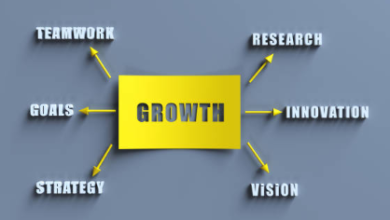
Picking the Right Software Development Company: A Strategic Approach
Finding a software development partner can be overwhelming. With so many options out there, how do you know which company will truly understand your needs, deliver on time, and create tech that actually drives your business forward? It’s not just about technical skills. It’s about communication, reliability, and whether their approach aligns with your business goals.
Choosing the right software development company is a strategic decision. The wrong partner can lead to delays, budget overruns, and tech debt you’ll struggle to maintain. The right one can help you launch faster, adapt to changing needs, and build a product that scales smoothly.
Here’s how to approach this choice like a business leader, not just a buyer.
Start with Clarity: Define What You Actually Need
Before you begin talking to vendors or collecting quotes, get clear on what you’re solving for. Are you building a brand-new product? Replacing legacy systems? Automating internal operations? Each goal requires a different approach.
Document Requirements and Constraints
Start with a short brief that outlines:
- Your core business problem
- The audience or user for the solution
- Key features or functionality
- Any technical constraints (such as legacy integrations)
- Your ideal timeline and budget range
This doesn’t have to be a 50-page document. A one-pager with real business context will help software partners understand what matters most.
Decide Between Custom vs. Platform-Based Solutions
Not every project needs to be built from scratch. If your needs are relatively standard, you might benefit from a platform-based solution with some customization. But if your workflows or offerings are unique, custom software will give you the flexibility and control you need.
Knowing which path you want to take will narrow your search and prevent mismatches later.
Look for a Reliable Software Firm with the Right Technical Depth
Once you’re clear on your goals, it’s time to find a reliable software firm. This isn’t just about tech skills. You want a partner who understands your industry, asks the right questions, and has experience building solutions like the one you need.
Check for Full-Stack Capabilities
A well-rounded software firm should offer expertise across the stack, including:
- Frontend and UI/UX design
- Backend architecture and databases
- Mobile development (iOS/Android)
- DevOps and deployment
- API integrations
You don’t want to hire three different teams to build one system. Look for a partner that can handle your project end-to-end.
Ask About Team Composition and Experience
Dig into who will actually be working on your project. Ask about:
- Seniority levels (junior, mid-level, senior engineers)
- Relevant experience with similar projects or tech stacks
- Availability and time zones
- Whether the team is in-house or subcontracted
A consistent, experienced team often means smoother communication and fewer surprises.
Evaluate Their Development Process and Communication Style
Even the most talented developers won’t help your business if they’re disorganized or poor at communication. Process matters. The best software companies will have a clear, repeatable workflow that keeps your project moving forward.
Ask How They Run Projects Day-to-Day
You should understand:
- How they plan and prioritize tasks (Scrum, Kanban, custom sprints)
- How often you’ll meet or receive updates
- What tools they use for communication and documentation (Slack, Jira, Notion, etc.)
- How they handle scope changes or urgent fixes
Your ideal partner will adapt their process to fit your team, not force you into rigid workflows.
Prioritize Clear, Frequent Communication
Consistent updates build trust. Look for firms that provide:
- Weekly check-ins or demos
- Transparent timelines and roadmaps
- Clear escalation paths for delays or blockers
If the firm is vague about communication or slow to respond during early conversations, that’s a red flag.
Review Their Track Record and References
A company’s portfolio and past client relationships speak volumes. Don’t just rely on testimonials or case studies from their website. Dig deeper.
Look for Specific, Relevant Case Studies
Ask to see real examples of work that align with your goals. Pay attention to:
- What problem was solved
- How the team approached it
- What tech stack was used
- Business results after launch
Look for signs that they understand both the technical and business side of projects.
Talk to Past Clients
Ask for 2 to 3 references and reach out with these questions:
- Did the team hit deadlines and budgets?
- How did they handle changes or challenges?
- Would you work with them again?
This can reveal a lot about how the firm performs under pressure.
Balance Quality, Cost, and Timeline
It’s tempting to go with the lowest bid, but cheap development often leads to expensive problems down the line. Focus on long-term value.
Avoid Unrealistic Promises
If one vendor says they can deliver in half the time for half the cost, be skeptical. Ask how they’ll manage scope, quality assurance, and changes. A trustworthy firm will give you a realistic plan, not just a fast one.
Consider Cost Models That Fit Your Needs
Different pricing structures can work for different types of projects:
- Fixed price: Good for short-term, well-defined work
- Time and materials: Flexible for evolving projects
- Dedicated team: Ideal for long-term development or product builds
Your partner should help you choose the right model and be transparent about costs.
Don’t Overlook Post-Launch Support
Software isn’t “done” once it goes live. You’ll need maintenance, updates, maybe even new features as your business grows.
Ask About Support and Maintenance Packages
Make sure your partner offers:
- Bug fixes and security patches
- Ongoing performance monitoring
- Feature updates or enhancements
Some firms disappear after delivery. A reliable software firm will commit to long-term support, even if it’s just part-time.
Plan for Handover if Needed
If you plan to bring the tech in-house later, ask about documentation, code handover, and knowledge transfer. The more prepared your partner is for this, the smoother it will go.
Red Flags to Watch Out For
Not every software company will be a good fit. Be on the lookout for warning signs, including:
- Vague or generic proposals
- Lack of transparency in pricing or timeline
- Poor communication or delayed responses
- Overemphasis on speed over quality
- No clear project management structure
If something feels off, trust your gut and keep looking.
Strategic Partnership, Not Just a Vendor Relationship
The best software firms aren’t just service providers. They act as strategic partners. That means understanding your business, anticipating needs, and working collaboratively, not just delivering code and moving on.
When you find a partner like this, the relationship goes beyond a single project. You get a team that understands your business goals and can help you innovate over time.
Conclusion
Choosing a software development company is about much more than checking technical boxes. It’s about finding a reliable software firm that aligns with your goals, communicates clearly, and delivers consistent results. From strategy to post-launch support, your ideal partner should feel like an extension of your team.
Take your time, ask the right questions, and evaluate each option through a business lens. The right decision here can save you time, money, and countless headaches, and set your business up for smarter, faster growth.
Whether you’re building a new product, scaling an internal tool, or just exploring the idea of custom development, treat the vendor selection process like the strategic investment it is. The right partner won’t just build your software. They’ll help build your future.




